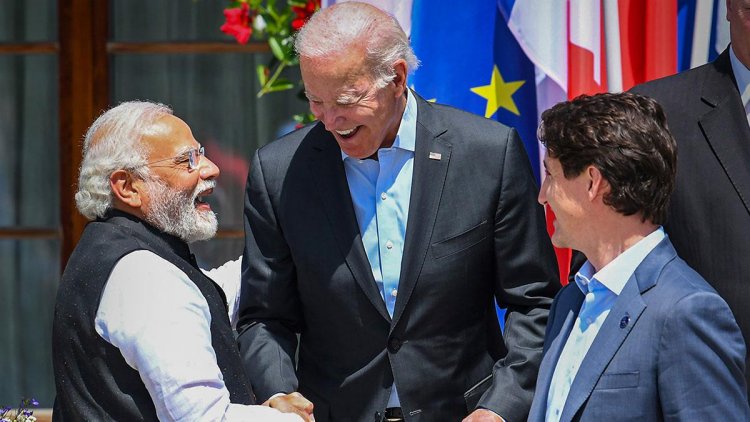PM Modi’s Participation in G7 and G20: The Challenge
STORIES, ANALYSES, EXPERT VIEWS

Japan PM Kishida’s invitation to Modi for the G7 Summit in May under Japan’s presidency was what got the most attention globally after talks between the two leaders. This is not surprising, writes K P Nayar (Strategic Analyst). In fact, Foreign Secretary Vinay Kwatra acknowledged that India’s current G20 presidency and Japan’s priorities for G7 ‘formed an important component of (their) bilateral conversation.’
Modi has accepted the invitation to attend the May summit. Nayar states “it will require all of External Affairs Minister S Jaishankar’s rational arguments and persuasive skills for Modi to return unscathed from the summit….
“Given the recent experience at G20 meetings in Bengaluru and New Delhi, the G7 Summit will be overwhelmed by the Ukraine war. This will be more so if recent Russian successes on the battlefield enhance the clear possibility of diplomatic and strategic setbacks for G7 countries by the time of the summit. “Given India’s neutrality in the Russia-Ukraine conflict, Modi can be singed if he does not go along with the Western powers against Russia. The saving grace is that India is not a G7 member, only a special invitee. So, Modi is not required to formally negotiate any summit declaration or make any commitment to help Ukraine during the deliberations.”
India, suggest Nayar “can avoid these pitfalls – or at least minimise their fallout – if Modi launches a Ukraine peace effort without delay. If India’s role is that of a peacemaker, it must remain neutral, in word and in deed, at any plurilateral or multilateral gathering. In that case, New Delhi’s neutrality at the summit will automatically become non-negotiable…..A Chinese peace initiative has so far been a non-starter…”
India’s former Permanent Representative to the UN in New York, TS Tirumurti, recently said on record that UN Secretary-General Antonio Guterres told him soon after the war broke out that India was ‘in a unique position to talk to both sides’ and give peace negotiations a chance. An Indian peace offensive will also mean less pressure on the G20 and its Indian presidency to be overly strident in support of Ukraine. A push for dialogue by the G20 presidency offers the best chance for a smooth New Delhi summit for the organisation in September.
















